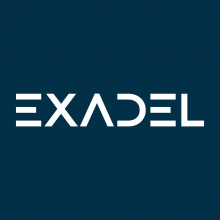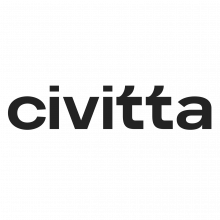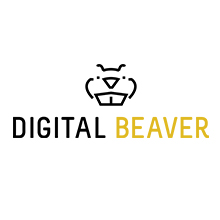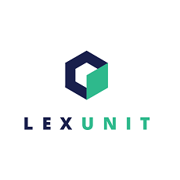
There are 16 Companies in Hungary
that provide Angular Development Services!
Hungary is an open economy where particular emphasis is placed on encouraging foreign direct investments. Partnership with potential investors is a national priority, special attention is paid to the needs of already existing companies, and to the further development of the business climate. In Hungary, the IT Services market is predicted to reach a revenue of $2.06 billion in 2025, according to Statista.
Discover Top IT Companies in Hungary specialized in Angular and other related services. Find the best IT service providers for your projects.
Angular (formerly AngularJS) is a popular open-source web application framework maintained by Google and a community of developers. It's used for building dynamic, single-page web applications (SPAs) and web-based applications in general. Angular provides a structured and organized way to create complex web applications by extending HTML with additional features and enabling the development of interactive, responsive, and maintainable front-end web interfaces.
Handpicked companies • No obligation to hire • 100% risk-free
Featured Companies in Hungary
This month, the following Angular Development companies managed to provide an outstanding service and support. It's worth taking a look.
Explore Top Angular Development Companies in Hungary
IT Staff Augmentation - Trusted by Fortune 500 Companies - EU/US based (Dublin-Sarasota-Budapest)
A rapidly growing team from Hungary providing project delivery and team augmentation in Angular/React/Vue, PHP/.NET/Node.js, Go, Flutter, and DevOps.
We specialize in web and software development, and data-driven marketing, offering tailored solutions with deep expertise in transactional products.
RabIT is a dynamic and innovative software engineering company with offices in Santa Monica, California and in Budapest, Szeged and Pécs, Hungary.
High-quality, AI-first finTech, eduTech SaaS software development!
Headquartered in Hungary, we deliver all the dynamism and nimbleness of this renowned world-wide software engineering center – for some of the great g...
We are an experienced web and mobile app development agency based in Budapest, Hungary. We've had world-class clients such as KPMG, Danone, Budapest A...
We invest time in your business
A high-end consulting firm in Central Europe, specialized in automation of knowledge work. AI, semantic search and intelligent text analytics.
Filter Angular Development Companies in Hungary by Cities
Dive deeper and find the company you need close to you or, from a specific city you prefer. Some of the best companies come from smaller places
Find more Angular Development companies around the world
TechBehemoths is the world's most advanced and user-friendly platform to match IT Companies with real clients without hustle.
The Hungarian ICT Industry: General Report & Country Overview
Hungary is an open economy where particular emphasis is placed on encouraging foreign direct investments. Partnership with potential investors is a national priority, special attention is paid to the needs of already existing companies, and to the further development of the business climate.
Starting in 2010, Hungary has put a lot of effort into developing the IT sector. Some of the best steps in this direction are:
- Tax modifications and incentive systems related to R&D activities
- Strategic partnership for local IT companies, as well as government projects
- A dual education system based on the tech industry’s needs
- Adjusted the economic climate to the latest requirements of Industry 4.0
In Hungary, the IT Services market is predicted to reach a revenue of $2.06 billion in 2025, according to Statista. For 2024, the revenue for the same industry was $1.97 billion, which confirms the steady ground the national IT industry stands on. Additionally, Hungarian IT companies have access to the vast EU digital market, which allows them to export services across Europe.
The most popular IT services provided by Hungarian companies are Software development, Software engineering, and cybersecurity. However, in the last several years, local companies have also focused on app development and have worked on an increasing number of projects in the AR and VR branches.
Why You Should Work With Hungarian IT Companies
Even though the digital market is dominated by foreign IT companies (66%), there are also local companies that are striving to provide cutting-edge technology services, which may compete in some places with US, German, and UK companies. For central Europe, this represents a big step ahead and provides cheaper alternatives to the same services for potential customers.
In 2023, the value of Hungarian exported IT services reached 33,664 million euros or 20.9% of the entire export value of the country. The numbers are expected to grow significantly due to foreign direct investments in the sector, which also grew by 19% in the 2019-2020 Q1, and in 2024, Hungary attracted 10 million euros in FDI.
What You Should Pay Attention to When Working With Hungarian IT Companies
Hungarian IT companies are not the best-known on the international market, so far. However, their increased potential lately may lead to a market boom in the central European market, and many potential customers could turn their attention to this progressive alternative. But the main challenge the companies will possibly face is a lack of experience in working with big projects. In its turn, the lack of experience can lead to poor project management, late project delivery, or even poorly executed projects.
How Reliable Are Hungarian IT Companies
Hungarian IT companies don’t have a reputation for providing services in IT, which can turn both into an advantage and a disadvantage for the companies. Depending on how well local IT companies will start performing on a larger scale, the reliability of companies will be appreciated.
How Does the Hungarian IT Sector Relate to the Neighboring Countries
The V4 countries are working together in many areas, including in the IT sector. Companies from these countries benefit from facilities and easier access to national markets, but they also compete.
In these regards, Hungary is the 2nd fastest-growing country in the IT sector in the group of 4, straight after Poland, which already took the lead with an advantage of 35%.
Outside the V4 group, Romania and Ukraine are also countries that are direct competitors with the Hungarian IT sector. It is still uncertain whether Hungary, Ukraine, Poland, or Romania will become the largest Central European hub in the EU, and generally, in Europe.
What is Angular and what are its benefits for your projects?
Angular (formerly AngularJS) is a popular open-source web application framework maintained by Google and a community of developers. It's used for building dynamic, single-page web applications (SPAs) and web-based applications in general. Angular provides a structured and organized way to create complex web applications by extending HTML with additional features and enabling the development of interactive, responsive, and maintainable front-end web interfaces. Here are some key aspects and concepts of Angular:
-
Component-Based Architecture
-
Templates
-
Directives
-
Dependency Injection
-
Services
-
Routing
-
Observable and RxJS
-
Modules
-
Testing
-
Cross-Platform
Angular's structured approach, strong tooling, and vibrant ecosystem of libraries and extensions make it a powerful framework for building modern web applications. It is particularly well-suited for large and complex projects where maintainability and scalability are crucial.
Companies may choose Angular over other front-end frameworks for their projects for a variety of reasons, depending on their specific needs and priorities.
-
Google Backing: Angular is developed and maintained by Google. This association often gives companies confidence in its long-term support, stability, and continuous improvement. Google's involvement is seen as a sign of reliability and commitment to the framework.
-
Mature and Established: Angular has been around for a while and has a strong track record of being used successfully in large-scale enterprise projects. It has a well-defined architecture and best practices, which can be beneficial for maintaining and scaling applications over time.
-
TypeScript Support: Angular is built with TypeScript, a statically-typed superset of JavaScript. TypeScript provides better tooling, code maintainability, and catches errors at compile time, which can reduce bugs and enhance code quality, making it attractive to companies that prioritize robust code.
-
Full-Featured Framework: Angular provides a comprehensive set of tools, libraries, and features out of the box, including routing, form handling, HTTP client, and more. This can save development time and effort compared to integrating multiple third-party libraries in other frameworks.
-
Two-Way Data Binding: Angular offers powerful two-way data binding, which allows for automatic synchronization between the data model and the view. This feature can make it easier to develop interactive and responsive user interfaces.
-
Large and Active Community: Angular has a large and active community of developers and a wealth of resources, including documentation, tutorials, and third-party libraries. This can be beneficial for finding solutions to common problems and getting support when needed.
-
Enterprise-Ready: Angular provides features like dependency injection, modularity through modules, and a strong emphasis on testability. These characteristics are well-suited for building robust and maintainable enterprise-level applications.
-
Strict Coding Standards: Angular enforces a set of coding standards and best practices, which can lead to more consistent and readable code. This can be important for companies with multiple developers working on the same codebase.
-
Cross-Platform Development: Angular can be used for building both web and mobile applications. Companies looking to develop applications for multiple platforms may choose Angular for its ability to share code between web and mobile apps using technologies like NativeScript or Ionic.
-
Integration with Backend Technologies: Angular can easily integrate with various backend technologies and APIs. This makes it suitable for projects where the front end needs to communicate with different types of server-side applications.
-
Security Features: Angular provides built-in security mechanisms to help prevent common web vulnerabilities like Cross-Site Scripting (XSS) and Cross-Site Request Forgery (CSRF). This can be crucial for projects with high security requirements.
-
Ecosystem and Tooling: Angular has a rich ecosystem of tools, extensions, and IDE support, including Angular CLI for project setup and management. This can streamline development workflows and improve productivity.
Ultimately, the choice of Angular or any other framework depends on the specific project requirements, the development team's expertise, and the company's long-term goals. Companies evaluate various factors to determine which framework aligns best with their needs, resources, and priorities.















